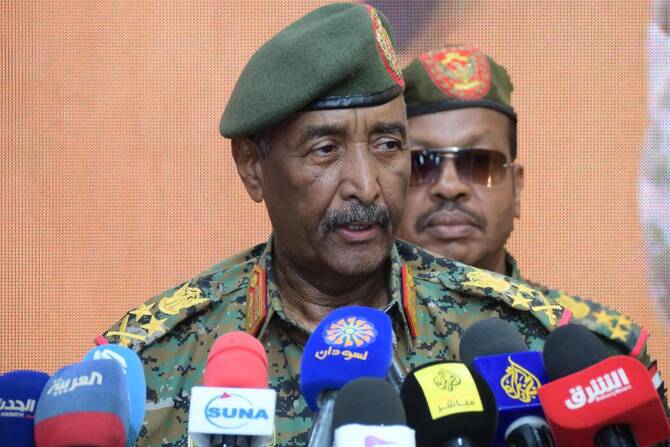Sudan’s army leader Abdel Fattah Burhan appointed diplomat Dafallah Al-Haj Ali as acting prime minister on Wednesday, weeks after the army’s recapture of Khartoum.
Burhan, chairman of Sudan’s transitional sovereign council, also approved the appointment of Omar Seddik, a current ambassador, as foreign minister, a council statement said.
In March, the Sudanese army drove Rapid Support Forces militia from most of Khartoum after two years of devastating conflict that split the country into rival zones of control. The RSF is still deeply embedded in western Sudan.
The war erupted in April 2023 over disputes about the integration of the two forces after they worked together to oust civilians with whom they had shared power after the uprising that toppled autocrat Omar al-Bashir.
In February, Burhan said there would be changes to the country’s interim constitution, which military sources said would remove all references to partnership with civilians or the RSF, placing authority solely with the army which would appoint a technocratic prime minister who would then appoint a cabinet.
Elsewhere, hundreds of Tunisians took to the streets of the capital on Thursday to mark Labour Day, to protest against President Kais Saied and to demand the release of jailed political figures.
The rally, attended by members of different political factions, was called by Tunisia’s powerful UGTT trade union confederation and relatives of detained opposition figures.
“We’re not happy with what’s happening,” activist Souhaieb Ferchichi said. “People keep advocating for their rights despite an atmosphere of fear and repression.”
Demonstrators on Habib Bourguiba Avenue, Tunis’s main thoroughfare and a popular protest spot, carried a banner reading: “Injustice is the beginning of the end.”
“The revolution will come,” they chanted, with some carrying signs calling the president a “tyrant”.
Since Saied’s power grab in July 2021, in which he dissolved parliament and began ruling by decree, rights groups have warned of a sharp decline in civil liberties in Tunisia.
Thursday’s protest comes days after lawyer Ahmed Souab was detained on terrorism-related charges after claiming that judges were under political pressure to hand opposition figures hefty sentences in a recent mass trial.
Last month’s trial saw around 40 public figures, some of them staunch critics of Saied, sentenced to hefty jail terms on charges including plotting against the state.
Souab had been a member of the defence team.
“As his family, we consider his arrest to be politically motivated,” said the lawyer’s 67-year-old brother, Mongi Souab.
The trial drew international criticism, with objections from France, Germany and the United Nations. This week, however, Saied dismissed “comments and statements by foreign parties” as “blatant interference in Tunisia’s internal affairs”.
Thursday’s demonstration in Tunis was also marked by a counter-protest.
“The president said what he said: no to foreign interference,” said Ridha Soula, a retired 70-year-old among a smaller group of Saied supporters near the main rally.
“We have elections here, and the people gave their voice,” he said. “If you won, we’re with you. If you lose, you stay quiet.”
By Agencies
Email your news TIPS to Editor@Kahawatungu.com — this is our only official communication channel


